| Presenters |
Below we have listed short profiles for keynotes, facilitators, authors and panelists. We also have a Delegate Directory list of conference participants.
| Keynote profiles |
[Listed in alphabetical order]
Trudy Banta
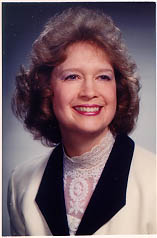 Professor Trudy W. Banta is Vice Chancellor for Planning and Institutional Improvement, and Professor of Higher Education, at Indiana University-Purdue University Indianapolis. She has developed and coordinated thirteen national conferences and ten international conferences held in the United Kingdom, Finland, Germany, the Netherlands, Hong Kong, Australia, the U.S., and Malaysia on the topic of assessing quality in higher education. She has consulted with faculty and administrators in 38 states and Puerto Rico on the topic of outcomes assessment. She has also given invited addresses at national conferences in China, France, Germany, Canada, and Spain. Since 1983, Banta has written or edited seven published volumes on assessment, contributed 20 chapters to other published works, and written more than 100 articles and reports. Her two most recent books are entitled Assessment in Practice, and Assessment Essentials. She is the founding editor of Assessment Update, a bi-monthly periodical published by Jossey-Bass since 1989. Professor Banta is joined in her keynote by her colleagues Sharon Hamilton and Susan Kahn.
Professor Trudy W. Banta is Vice Chancellor for Planning and Institutional Improvement, and Professor of Higher Education, at Indiana University-Purdue University Indianapolis. She has developed and coordinated thirteen national conferences and ten international conferences held in the United Kingdom, Finland, Germany, the Netherlands, Hong Kong, Australia, the U.S., and Malaysia on the topic of assessing quality in higher education. She has consulted with faculty and administrators in 38 states and Puerto Rico on the topic of outcomes assessment. She has also given invited addresses at national conferences in China, France, Germany, Canada, and Spain. Since 1983, Banta has written or edited seven published volumes on assessment, contributed 20 chapters to other published works, and written more than 100 articles and reports. Her two most recent books are entitled Assessment in Practice, and Assessment Essentials. She is the founding editor of Assessment Update, a bi-monthly periodical published by Jossey-Bass since 1989. Professor Banta is joined in her keynote by her colleagues Sharon Hamilton and Susan Kahn.
David Boud
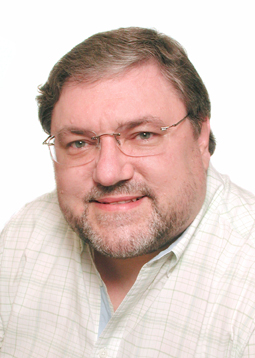 Professor David Boud has been involved in research and teaching development in adult, higher and professional education for over 30 years and has contributed extensively to the literature. Previously he held the positions of Head of the School of Adult and Language Education and he was Associate Dean (Research and Development) in the Faculty of Education. Prior to his appointment at UTS he was Professor and Foundation Director of the Professional Development Centre at the University of New South Wales.
Professor David Boud has been involved in research and teaching development in adult, higher and professional education for over 30 years and has contributed extensively to the literature. Previously he held the positions of Head of the School of Adult and Language Education and he was Associate Dean (Research and Development) in the Faculty of Education. Prior to his appointment at UTS he was Professor and Foundation Director of the Professional Development Centre at the University of New South Wales.
David Nicol
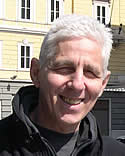 Dr David Nicol is Deputy Director, and Head of Research and Development in E-Learning, within the Centre for Academic Practice and Learning Enhancement (CAPLE) at the University of Strathclyde. He is also Director of the Re-engineering Assessment Practices (REAP) project one of six projects funded by the Scottish Funding Council (£1m) as part of its E-Learning Transformation Initiative. This project is investigating ways of improving assessment practices supported by technology across three Scottish HE institutions – Strathclyde, Glasgow University and Glasgow Caledonian University.
Dr David Nicol is Deputy Director, and Head of Research and Development in E-Learning, within the Centre for Academic Practice and Learning Enhancement (CAPLE) at the University of Strathclyde. He is also Director of the Re-engineering Assessment Practices (REAP) project one of six projects funded by the Scottish Funding Council (£1m) as part of its E-Learning Transformation Initiative. This project is investigating ways of improving assessment practices supported by technology across three Scottish HE institutions – Strathclyde, Glasgow University and Glasgow Caledonian University.
David has published in the areas of assessment, digital repositories, shared workspaces, electronic voting systems and on the social dimensions of e-learning. He is leading a QAA Scotland project on diagnostic and formative assessment in relation to the first year experience and is a collaborator in other JISC (community dimensions of learning object repositories) and HE Academy projects (learning from digital natives). He has also published on cost-benefit and risk analysis of investments in e-learning in higher education and provided workshops on these topics for the Centre for Excellence in Leadership. He led the University of Strathclyde’s benchmarking of e-learning pilot and is currently convening a cross-institutional working party at Strathclyde which is revising policy and guidelines for assessment.
Mantz Yorke
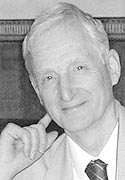 Professor Mantz Yorke was, until August 2005, Professor of Higher Education at Liverpool John Moores University, and is now Visiting Professor in the Department of Educational Research, Lancaster University.
Professor Mantz Yorke was, until August 2005, Professor of Higher Education at Liverpool John Moores University, and is now Visiting Professor in the Department of Educational Research, Lancaster University.
His early career was in teaching and teacher education, after which he turned to staff development and educational research at Manchester Polytechnic. He then spent six years as a senior manager at Liverpool Polytechnic followed by two years on secondment as Director of Quality Enhancement at the Higher Education Quality Council. On returning to LJMU he engaged in research and development focusing largely on the student experience. He has presented and published on various aspects of higher education.
| Facilitator profiles |
[Listed in alphabetical order]
Steve Draper
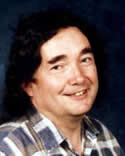 Steve Draper, following a PhD in Artificial Intelligence, worked as a post-doc. with Don Norman where he entered the field of HCI (Human Computer Interaction), and co-authored the book "User Centered System Design". He is currently at the University of Glasgow, where he has worked on evaluation of applications of learning technology, and developed the method of "Integrative Evaluation". The practical teaching innovations he has recently been personally concerned with include the use of EVS in lectures, and setting up a Peer Assisted Learning scheme. Much of what he has written is available at http://www.psy.gla.ac.uk/~steve/.
Steve Draper, following a PhD in Artificial Intelligence, worked as a post-doc. with Don Norman where he entered the field of HCI (Human Computer Interaction), and co-authored the book "User Centered System Design". He is currently at the University of Glasgow, where he has worked on evaluation of applications of learning technology, and developed the method of "Integrative Evaluation". The practical teaching innovations he has recently been personally concerned with include the use of EVS in lectures, and setting up a Peer Assisted Learning scheme. Much of what he has written is available at http://www.psy.gla.ac.uk/~steve/.
Stephen C. Ehrmann
 Stephen C. Ehrmann directs the award-winning Flashlight Program on the evaluation of educational uses of technology at The Teaching, Learning, and Technology Group; the Flashlight Online web-based system for doing, and sharing, surveys is in use at hundred colleges and universities around the world. Dr. Ehrmann is well-known as a writer and public speaker. He has recently worked on a study of factors affecting the wider adoption of instructor-developed software, on a formative evaluation of course management system use, on an article on the implications of technological changes for the goals and content of a university education, and on evaluation of learning spaces.
Stephen C. Ehrmann directs the award-winning Flashlight Program on the evaluation of educational uses of technology at The Teaching, Learning, and Technology Group; the Flashlight Online web-based system for doing, and sharing, surveys is in use at hundred colleges and universities around the world. Dr. Ehrmann is well-known as a writer and public speaker. He has recently worked on a study of factors affecting the wider adoption of instructor-developed software, on a formative evaluation of course management system use, on an article on the implications of technological changes for the goals and content of a university education, and on evaluation of learning spaces.
Before helping to start The TLT Group in 1998, Steve Ehrmann served for almost twenty years as an officer for programs giving grants for educational innovations in postsecondary education. He has a Ph.D. in Management and Higher Education.
Lewis Elton
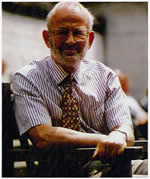 Lewis Elton is Visiting Professor of Higher Education, University of Manchester; Professor Emeritus of Higher Education, University College London and University of Surrey; Fellow of the American Institute of Physics, the Society for Research into Higher Education, the Royal Society of Arts and the Higher Education Academy; and Honorary Life Member of the Staff and Educational Development Association. He holds Doctorates (honoris causa) of the University of Kent at Canterbury and the University of Gloucestershire. He has been presented with a Festschrift by his former students [P. Ashwin (ed), ‘Changing Higher Education: The Development of Learning and Teaching’, Routledge Education 2006], and received the Times Higher Lifetime Achievement Award, 2005. His most recent work has been concerned with the scholarship of teaching and learning, including the research/teaching nexus in higher education, the balance between collegial and ‘top down’ management in universities, assessment for creativity and academic writing in the disciplines.
Lewis Elton is Visiting Professor of Higher Education, University of Manchester; Professor Emeritus of Higher Education, University College London and University of Surrey; Fellow of the American Institute of Physics, the Society for Research into Higher Education, the Royal Society of Arts and the Higher Education Academy; and Honorary Life Member of the Staff and Educational Development Association. He holds Doctorates (honoris causa) of the University of Kent at Canterbury and the University of Gloucestershire. He has been presented with a Festschrift by his former students [P. Ashwin (ed), ‘Changing Higher Education: The Development of Learning and Teaching’, Routledge Education 2006], and received the Times Higher Lifetime Achievement Award, 2005. His most recent work has been concerned with the scholarship of teaching and learning, including the research/teaching nexus in higher education, the balance between collegial and ‘top down’ management in universities, assessment for creativity and academic writing in the disciplines.
Peter Kandlbinder
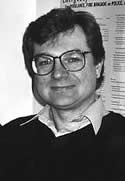 Peter Kandlbinder is a Senior Lecturer in the Institute for Interactive Media and Learning at the University of Technology, Sydney. He has been working in the field of academic development for over 15 years with experience in supporting academics to develop their capabilities in assessing student learning, problem-based learning, postgraduate supervision and other forms of small group learning. Peter’s broad research interest is on the impact that academics’ decisions make in course design has on student learning and his research has been published in various book chapters, journal articles, conference papers and an edited series of interviews in which postgraduate supervisors talk about their supervision practice.
Peter Kandlbinder is a Senior Lecturer in the Institute for Interactive Media and Learning at the University of Technology, Sydney. He has been working in the field of academic development for over 15 years with experience in supporting academics to develop their capabilities in assessing student learning, problem-based learning, postgraduate supervision and other forms of small group learning. Peter’s broad research interest is on the impact that academics’ decisions make in course design has on student learning and his research has been published in various book chapters, journal articles, conference papers and an edited series of interviews in which postgraduate supervisors talk about their supervision practice.
Peter has been involved in a number of projects to improve the quality of assessment at the University of Technology, Sydney, including focus groups with staff and students, editing the “Preventing Plagiarism” kit and the IML Assessment guide series, reviewing of assessment policy and procedures, and the development of the IML Assessment web site.
Terry Mayes
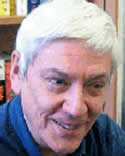 Terry Mayes is an Emeritus Professor at Glasgow Caledonian University. He is currently engaged by the Higher Education Academy as leader of the Evaluation and Dissemination Support Team for the HEA/JISC e-learning Benchmarking and Pathfinder programmes. He was the formative evaluator/critical friend for the Benchmarking Pilot programme that concluded in July 2006.
Terry Mayes is an Emeritus Professor at Glasgow Caledonian University. He is currently engaged by the Higher Education Academy as leader of the Evaluation and Dissemination Support Team for the HEA/JISC e-learning Benchmarking and Pathfinder programmes. He was the formative evaluator/critical friend for the Benchmarking Pilot programme that concluded in July 2006.
He is also currently acting as e-pedagogy advisor on the Scottish e-learning Transformation Project TESEP (Transforming and Enhancing the Student Experience through Pedagogy) as well as advisor for the Scottish QAA Enhancement Theme for the first year experience.
Terry Mayes has a long experience as both researcher and practitioner in learning technology. During the late 1990s Terry Mayes led collaborative projects funded through the UK Research Councils (both ESRC and EPSRC) involving research on the educational potential of vicarious learning. His recent research involves a study, funded through the ESRC TLRP, of the learning cultures in FE, and he has been a consultant for the JISC-funded LEX (Learner Experience) project. He has published widely on pedagogical aspects of learning technology. He was the co-chair for ALT-2006.
Colin Milligan
 Colin Milligan is a Researcher in the Centre for Academic Practice and Learning Enhancement at the University of Strathclyde. His current work is focused on the opportunities provided by social software in supporting personal development planning and the personal research environment postgraduate research students.
Colin Milligan is a Researcher in the Centre for Academic Practice and Learning Enhancement at the University of Strathclyde. His current work is focused on the opportunities provided by social software in supporting personal development planning and the personal research environment postgraduate research students.
Although a molecular biologist by training, Colin has worked in e-Learning for thirteen years, authoring, developing, delivering and researching the efficacy of online learning content. Previous work has centred on how technology can be utilised to enhance the learning process, either by:
- providing highly interactive content which stimulates the learner (see: http://www.jelsim.org/),
- creating an online environment which is centred on the needs of the individual learner rather than restricted by limitations imposed by the institution (see: http://wiki.cetis.ac.uk/ple)
- designing learning experiences, especially those which recognise the importance of formative assessment in creating a self-regulated learner
A full CV is available from: http://personal.strath.ac.uk/colin.milligan/
Catherine Owen
 Catherine Owen is manager of the REAP project and is based at the Centre for Academic Practice and Learning Enhancement at the University of Strathclyde. Catherine has a professional background in information and library science and started her career as an archivist and librarian in the cultural heritage sector. More recently, Catherine was director of a UK-wide service based at the University of Glasgow which delivers high-quality digital resources to the higher education research community. As well as editing a number of books exploring the use of new technologies in higher education research, Catherine has acted as a consultant to a broad range of e-research and digital resource creation projects in the arts, both nationally and internationally. Catherine recently completed an MBA and is particularly interested in strategic change initiatives in higher education and their impact on institutional processes and cultures.
Catherine Owen is manager of the REAP project and is based at the Centre for Academic Practice and Learning Enhancement at the University of Strathclyde. Catherine has a professional background in information and library science and started her career as an archivist and librarian in the cultural heritage sector. More recently, Catherine was director of a UK-wide service based at the University of Glasgow which delivers high-quality digital resources to the higher education research community. As well as editing a number of books exploring the use of new technologies in higher education research, Catherine has acted as a consultant to a broad range of e-research and digital resource creation projects in the arts, both nationally and internationally. Catherine recently completed an MBA and is particularly interested in strategic change initiatives in higher education and their impact on institutional processes and cultures.
Derek Rowntree
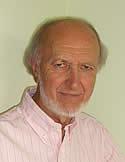 Dr Derek Rowntree recently retired as Professor of Educational Development at the Institute of Educational Technology in the Open University (UK). He holds a BSc (Econ), a teacher's certificate and a higher doctorate (DTech) awarded for his publications relating to the improvement of learning and teaching. Of his many books, Assessing Students: How Shall we Know Them? (Routledge, London) is the one most relevant to the present conference.
Dr Derek Rowntree recently retired as Professor of Educational Development at the Institute of Educational Technology in the Open University (UK). He holds a BSc (Econ), a teacher's certificate and a higher doctorate (DTech) awarded for his publications relating to the improvement of learning and teaching. Of his many books, Assessing Students: How Shall we Know Them? (Routledge, London) is the one most relevant to the present conference.
For more than 40 years he has been advising on the development of multi-media learning and student assessment systems, and producing course materials, in a variety of areas including Arts and Education, Social Sciences, Health and Social Welfare and Management Education. He has been acting as an educational consultant to course teams and individual academics, and running workshops and online courses for teachers, trainers and managers, not only for the Open University and other educational institutions around the world but also for many professional, commercial, and public service organisations.
For further details, and various articles about assessment and other course design issues, see his web-site:
http://www-iet.open.ac.uk/pp/D.G.F.Rowntree/derek.html
Maddalena Taras
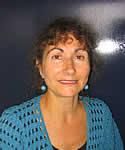 Maddalena Taras has a language/linguistics background: MA, MPhil in Italian literature, MA in Applied Linguistics. Senior lecturer at the University of Sunderland, she has lectured in French and ESOL. Her research focuses on assessment practice and theory. Her innovative form of student self-assessment in the HE context uses summative work, incorporates tutor/peer feedback, and with-holds the tutor grade until feedback has been understood and students have graded their own work.
Maddalena Taras has a language/linguistics background: MA, MPhil in Italian literature, MA in Applied Linguistics. Senior lecturer at the University of Sunderland, she has lectured in French and ESOL. Her research focuses on assessment practice and theory. Her innovative form of student self-assessment in the HE context uses summative work, incorporates tutor/peer feedback, and with-holds the tutor grade until feedback has been understood and students have graded their own work.
She has signalled anomalies and contradictions in the use of feedback and assessment protocols within HE institutions which are detrimental to student learning. Her work on theory clarifies assessment terminology and proffers a relationship between summative, formative and self-assessment which is based on the process as opposed to the functions of assessment as is currently the case in the assessment for learning paradigm in the compulsory sector. This begins to build a bridge in discourse on assessment across sectors.
Nigel Watson
 Dr Nigel Watson. Graduate of Paisley University with a BSc Hons in Biology and subsequently from Jordanhill College of Education as a qualified Scottish secondary school teacher. He taught biology and chemistry to all levels of school student in Glasgow and Ayrshire schools until commencing doctoral studies with the Forensic Science Unit (now the Centre for Forensic science) at Strathclyde University and subsequently commencing work with the Forensic Science Unit in 1986. Dr Watson has carried out forensic casework in the areas of DNA, blood slash interpretation and fibre analysis and has appeared as an expert witness in court.
Dr Nigel Watson. Graduate of Paisley University with a BSc Hons in Biology and subsequently from Jordanhill College of Education as a qualified Scottish secondary school teacher. He taught biology and chemistry to all levels of school student in Glasgow and Ayrshire schools until commencing doctoral studies with the Forensic Science Unit (now the Centre for Forensic science) at Strathclyde University and subsequently commencing work with the Forensic Science Unit in 1986. Dr Watson has carried out forensic casework in the areas of DNA, blood slash interpretation and fibre analysis and has appeared as an expert witness in court.
Responsibilities have centred around the delivery of lecture and laboratory work in a wide variety of disciplines to both undergraduate courses and the masters and diploma postgraduate forensic science courses. These have included lectures and laboratories in forensic DNA and also in microscopy and hair and fibre evidence examination. In addition Dr Watson has lectured in nucleic acids chemistry, separation sciences concerning proteins and DNA fragments, and aspects of forensic botany. A recent new class has been in Forensic Statistics and Communication. Dr Watson also sits on the University safety review committee for genetically modified organisms and on the University Working Group on Assessment Policy.
| Author profiles |
[Listed in alphabetical order]
Mark Atlay
 Dr Mark Atlay is Director of Teaching and Learning and the University’s Centre for Excellence in Teaching and Learning, University of Bedfordshire. Mark spent seven years lecturing in chemistry at the University of Glamorgan before moving on to work on the development of distance learning materials at the Open University in the UK. At Luton he has worked in a number of areas including Quality Assurance, Staff Development, Quality Enhancement and Educational Development. He has coordinated the development and implementation of the University’s curriculum model involving a revised approach to skills development linked to progress files and personal development planning (PDP). The University was designated a Centre for Excellence in Teaching and Learning for this work and Mark was appointed the first CETL Director (see www.beds.ac.uk/bridgescetl ). He has also led a Hefce Good Management Practice project (GMP201) on effecting change in Higher Education. His current role involves responsibility for the development of the University’s curriculum and in his spare time he does some teaching on a postgraduate course for new academic staff.
Dr Mark Atlay is Director of Teaching and Learning and the University’s Centre for Excellence in Teaching and Learning, University of Bedfordshire. Mark spent seven years lecturing in chemistry at the University of Glamorgan before moving on to work on the development of distance learning materials at the Open University in the UK. At Luton he has worked in a number of areas including Quality Assurance, Staff Development, Quality Enhancement and Educational Development. He has coordinated the development and implementation of the University’s curriculum model involving a revised approach to skills development linked to progress files and personal development planning (PDP). The University was designated a Centre for Excellence in Teaching and Learning for this work and Mark was appointed the first CETL Director (see www.beds.ac.uk/bridgescetl ). He has also led a Hefce Good Management Practice project (GMP201) on effecting change in Higher Education. His current role involves responsibility for the development of the University’s curriculum and in his spare time he does some teaching on a postgraduate course for new academic staff.
Maha Bali
 Maha Bali is a senior instructional technologist at the Center for Learning and Teaching, American University in Cairo, Egypt. She earned her M.Ed. in eLearning from the University of Sheffield in January 2005, and is currently undergoing a PhD in Education at the University of Sheffield also. She has had several presentations at conferences at the American University in Cairo, mostly in the field of eLearning, and has recently co-written a paper that has been accepted in the Journal of Asynchronous Learning Networks. Her research interests include teaching and assessing critical thinking, use of eLearning and educational technology, and pedagogy of asynchronous discussions.
Maha Bali is a senior instructional technologist at the Center for Learning and Teaching, American University in Cairo, Egypt. She earned her M.Ed. in eLearning from the University of Sheffield in January 2005, and is currently undergoing a PhD in Education at the University of Sheffield also. She has had several presentations at conferences at the American University in Cairo, mostly in the field of eLearning, and has recently co-written a paper that has been accepted in the Journal of Asynchronous Learning Networks. Her research interests include teaching and assessing critical thinking, use of eLearning and educational technology, and pedagogy of asynchronous discussions.
Simon Bates
 Simon Bates is Director of Teaching and Senior Lecturer in the School of Physics at Edinburgh. He has a strong interest in development and innovation in Physics teaching. Recent work in this area have included the introduction and propagation of personal response systems as a tool for interactive engagement in large lectures; workshop / studio teaching as an effective replacement for small group tutorials; peer assessment; and blended learning, utilising online materials in support of face-to-face teaching. In the last few years, he has presented this work at national and international conferences, and published several articles on innovative aspects of teaching, particularly the utilisation of learning technology in support of this. In 2006, he received the Chancellor’s Award for Teaching, the highest individual award within the University of Edinburgh, in recognition of academic excellence.
Simon Bates is Director of Teaching and Senior Lecturer in the School of Physics at Edinburgh. He has a strong interest in development and innovation in Physics teaching. Recent work in this area have included the introduction and propagation of personal response systems as a tool for interactive engagement in large lectures; workshop / studio teaching as an effective replacement for small group tutorials; peer assessment; and blended learning, utilising online materials in support of face-to-face teaching. In the last few years, he has presented this work at national and international conferences, and published several articles on innovative aspects of teaching, particularly the utilisation of learning technology in support of this. In 2006, he received the Chancellor’s Award for Teaching, the highest individual award within the University of Edinburgh, in recognition of academic excellence.
Jim Baxter
 Dr Jim Baxter lectures in Psychology at Strathclyde University. For 12 years he has been in charge of Strathclyde’s First Year Psychology Class, which typically numbers 520+ students. His principal research area is Forensic Psychology. He is not therefore, an expert on formal research into educational practice or theory, and, given his existing research commitments, is unlikely to have the time to become one. The teaching initiatives reported in his paper are based, rather, on his experiences of teaching and assessing this first year class, and his perceptions of which improvements made possible by VLE-based opportunities for online collaborative learning would be most likely to assist his class to learn Basic Psychology.
Dr Jim Baxter lectures in Psychology at Strathclyde University. For 12 years he has been in charge of Strathclyde’s First Year Psychology Class, which typically numbers 520+ students. His principal research area is Forensic Psychology. He is not therefore, an expert on formal research into educational practice or theory, and, given his existing research commitments, is unlikely to have the time to become one. The teaching initiatives reported in his paper are based, rather, on his experiences of teaching and assessing this first year class, and his perceptions of which improvements made possible by VLE-based opportunities for online collaborative learning would be most likely to assist his class to learn Basic Psychology.
Barbara Crossouard
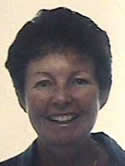 Barbara Crossouard is a Research Fellow in Education at the University of Sussex. She worked as a researcher for the EU-funded collaborative project Internet-Based Assessment (2002-2004), directed at the University of Sussex by Harry Torrance and then John Pryor. She recently completed her doctorate, building upon the EU project work at Sussex. This involved action research into formative assessment in doctoral contexts from the perspective of sociocultural learning theories, and was carried out in collaboration with John Pryor. Her research interests include formative assessment in school contexts, where she has been involved in the Assessment for Learning (AfL) strand of the Portsmouth Learning Community, a university/local authority collaboration, and in the evaluation of an AfL professional development initiative carried out on behalf of the States of Jersey with Judy Sebba. She continues to work with John Pryor in taking forward formative assessment from a sociocultural perspective in different education contexts.
Barbara Crossouard is a Research Fellow in Education at the University of Sussex. She worked as a researcher for the EU-funded collaborative project Internet-Based Assessment (2002-2004), directed at the University of Sussex by Harry Torrance and then John Pryor. She recently completed her doctorate, building upon the EU project work at Sussex. This involved action research into formative assessment in doctoral contexts from the perspective of sociocultural learning theories, and was carried out in collaboration with John Pryor. Her research interests include formative assessment in school contexts, where she has been involved in the Assessment for Learning (AfL) strand of the Portsmouth Learning Community, a university/local authority collaboration, and in the evaluation of an AfL professional development initiative carried out on behalf of the States of Jersey with Judy Sebba. She continues to work with John Pryor in taking forward formative assessment from a sociocultural perspective in different education contexts.
Marija Cubric
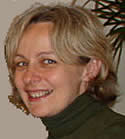 Marija Cubric is a Senior Lecturer in University of Hertfordshire (UH) Business School, where she teaches information systems and e-business related subjects. Before joining the University in September 2004, she worked as a system and software engineer, on various telecommunication projects in UK and Canada. She holds PhD degree in Computer Science (1994) from University of Concordia in Montreal and is working towards Master degree in Learning and Teaching in Higher Education (UH) . Her research interests include educational technologies, and their influence on learning and teaching processes. Marija has been using wikis in her teaching since late 2005 and has gained valuable experience that she would like to discuss and share with the rest of the community.
Marija Cubric is a Senior Lecturer in University of Hertfordshire (UH) Business School, where she teaches information systems and e-business related subjects. Before joining the University in September 2004, she worked as a system and software engineer, on various telecommunication projects in UK and Canada. She holds PhD degree in Computer Science (1994) from University of Concordia in Montreal and is working towards Master degree in Learning and Teaching in Higher Education (UH) . Her research interests include educational technologies, and their influence on learning and teaching processes. Marija has been using wikis in her teaching since late 2005 and has gained valuable experience that she would like to discuss and share with the rest of the community.
Nancy Curtin
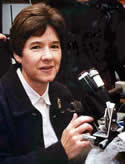 Nancy Curtin is a Reader in Muscle Physiology at Imperial College London, doing research into energy conversion during muscle contraction. She has had a long-standing involvement in medical education at Imperial where the pre-clinical phase of the course starts at the undergraduate level. With this group of students an important challenge is the enhancement of self-directed learning and assessment. Certainty-Based Marking (CBM) has been particularly useful to students, but is always limited by input from teachers.
Nancy Curtin is a Reader in Muscle Physiology at Imperial College London, doing research into energy conversion during muscle contraction. She has had a long-standing involvement in medical education at Imperial where the pre-clinical phase of the course starts at the undergraduate level. With this group of students an important challenge is the enhancement of self-directed learning and assessment. Certainty-Based Marking (CBM) has been particularly useful to students, but is always limited by input from teachers.
Quintin Cutts
 Dr Quintin Cutts is a senior lecturer in Computing Science at the University of Glasgow. His interests are in Computing Education and in Educational Technology. He leads an EPSRC-funded public engagement initiative to enthuse school pupils about the science of computing, separating this from the rote ICT training they are bombarded with throughout school, through classroom workshop and teacher CPD development. He has published widely on the use of electronic voting handsets in education, being amongst the first to report on the link between handset use and educational attainment. His current use of voting handsets in Level 1 computing classes is highly contingent with one lecture each week entirely based around handset questions derived from feedback from laboratory tutors. He recently received a teaching excellence award from the university.
Dr Quintin Cutts is a senior lecturer in Computing Science at the University of Glasgow. His interests are in Computing Education and in Educational Technology. He leads an EPSRC-funded public engagement initiative to enthuse school pupils about the science of computing, separating this from the rote ICT training they are bombarded with throughout school, through classroom workshop and teacher CPD development. He has published widely on the use of electronic voting handsets in education, being amongst the first to report on the link between handset use and educational attainment. His current use of voting handsets in Level 1 computing classes is highly contingent with one lecture each week entirely based around handset questions derived from feedback from laboratory tutors. He recently received a teaching excellence award from the university.
Nandini Das
 Dr Nandini Das is lecturer in Renaissance Literature and Director of Graduate Studies (Admissions) at the School of English, University of Liverpool. Both her teaching and research interests cover a wide range of late fifteenth to early seventeenth century texts and genres. She is interested particularly in Renaissance prose fiction and early travel writing and is currently working on a project that explores the many versions of Renaissance travel, from European educational trips to exotic Eastern voyages. She uses e-learning resources extensively in her teaching, and played a key-role in creating the VITAL (Blackboard) based e-learning resources for the undergraduate Shakespeare modules offered by the School of English.
Dr Nandini Das is lecturer in Renaissance Literature and Director of Graduate Studies (Admissions) at the School of English, University of Liverpool. Both her teaching and research interests cover a wide range of late fifteenth to early seventeenth century texts and genres. She is interested particularly in Renaissance prose fiction and early travel writing and is currently working on a project that explores the many versions of Renaissance travel, from European educational trips to exotic Eastern voyages. She uses e-learning resources extensively in her teaching, and played a key-role in creating the VITAL (Blackboard) based e-learning resources for the undergraduate Shakespeare modules offered by the School of English.
Tony Gardner-Medwin
 Tony Gardner-Medwin is an emeritus professor of physiology at University College London (UCL), researching on the cochlea and promoting dissemination of Certainty-Based Marking (CBM) to enhance the value of student self-assessment and objective testing. During his teaching career he has been particularly keen to develop practicals, simulations, tutorials and CAL sessions that challenge students, help them to learn through thinking, and that encourage effective interaction with teachers. Those unfamiliar with CBM should look at www.ucl.ac.uk/lapt and try out exercises. Tony encourages queries and pleas for help in applying these ideas in any field.
Tony Gardner-Medwin is an emeritus professor of physiology at University College London (UCL), researching on the cochlea and promoting dissemination of Certainty-Based Marking (CBM) to enhance the value of student self-assessment and objective testing. During his teaching career he has been particularly keen to develop practicals, simulations, tutorials and CAL sessions that challenge students, help them to learn through thinking, and that encourage effective interaction with teachers. Those unfamiliar with CBM should look at www.ucl.ac.uk/lapt and try out exercises. Tony encourages queries and pleas for help in applying these ideas in any field.
Peter Gray
 Dr. Gray earned his Ph.D. in Educational Psychology from the University of Oregon and his Masters Degree in Curriculum Theory from Cornell University. His areas of higher education expertise include student learning outcomes assessment; quality assurance; course, curriculum, and program design, development and evaluation; and leadership and planned change.
Dr. Gray earned his Ph.D. in Educational Psychology from the University of Oregon and his Masters Degree in Curriculum Theory from Cornell University. His areas of higher education expertise include student learning outcomes assessment; quality assurance; course, curriculum, and program design, development and evaluation; and leadership and planned change.
From 1984 to 2002 he was Associate Director of the Syracuse University Center for the Support of Teaching and Learning. He became Director of Academic Assessment at the United States Naval Academy in August 2002, where he is responsible for developing and maintaining a broad program of academic assessment.
Dr. Gray has over 40 publications including the chapter Roots of assessment: Tensions, solutions, and research Directions in Building a Scholarship of Assessment (Banta, T. W., editor, 2002); The campus-level impact of assessment: Progress, problems, and possibilities (Gray & Banta, 1997); and Viewing assessment as an innovation: Leadership and the change process (Gray, 1997). Dr. Gray chaired the Middle States Association Commission on Higher Education Advisory Panel that produced the publication, Student learning assessment: Options and resources. He has also given approximately 100 workshops, key note addresses and presentations at conferences and on individual campus world-wide concerning topics related to the enhancement of educational excellence in higher education.
John Hamer
 John Hamer is a Senior Lecturer in Computer Science at the University of Auckland, where he has worked since 1990. His education research interests include collaborative learning and peer-assessment. He is also involved in a number of multi-institutional, multi-national studies on how novices learn programming.
John Hamer is a Senior Lecturer in Computer Science at the University of Auckland, where he has worked since 1990. His education research interests include collaborative learning and peer-assessment. He is also involved in a number of multi-institutional, multi-national studies on how novices learn programming.
Rosario Hernández
 Rosario Hernández is a College Lecturer in the School of Languages, Literatures and Film at University College Dublin. Rosario’s primary degree is in Education and she also holds a B.A. and M.A. in Hispanic Studies. Currently, Rosario is about to complete a PhD in Education focusing on an analysis of the practices adopted in undergraduate Hispanic Studies programmes to assess students’ learning. Rosario has presented her work at international conferences, and published several articles on the impact that alternative assessment practices have on students’ learning. Rosario’s research interests include second language teaching and learning, assessment of student learning, teaching methodologies, the professional development of teachers and ICT in teaching. Rosario has recently been awarded a Fellowship in Teaching and Academic Development as part of a new initiative at University College Dublin to develop more innovative teaching and learning practices and to enhance student learning.
Rosario Hernández is a College Lecturer in the School of Languages, Literatures and Film at University College Dublin. Rosario’s primary degree is in Education and she also holds a B.A. and M.A. in Hispanic Studies. Currently, Rosario is about to complete a PhD in Education focusing on an analysis of the practices adopted in undergraduate Hispanic Studies programmes to assess students’ learning. Rosario has presented her work at international conferences, and published several articles on the impact that alternative assessment practices have on students’ learning. Rosario’s research interests include second language teaching and learning, assessment of student learning, teaching methodologies, the professional development of teachers and ICT in teaching. Rosario has recently been awarded a Fellowship in Teaching and Academic Development as part of a new initiative at University College Dublin to develop more innovative teaching and learning practices and to enhance student learning.
Lesley Lawrence
 Dr Lesley Lawrence is Assistant Head, Teaching Quality Enhancement at the University of Bedfordshire, formerly the University of Luton which she joined in 1993 as a lecturer in Leisure Studies. Following various faculty roles related to teaching and learning, she headed up a central student support area at the University in 2004 before moving to work in teaching quality enhancement. In her current role, she co-ordinates University-funded teaching and learning projects, is herself involved in teaching and learning projects, and has responsibilty for the annual University Teaching and Learning Symposium, the theme this year being 'Embracing e-learning'. She teaches on both undergraduate and postgraduate programmes including our Postgraduate Certificate in Academic Practice. Current and recent research interests include issues around engagement with assessment feedback, the student experience, and interaction in virtual communities both within leisure and education contexts.
Dr Lesley Lawrence is Assistant Head, Teaching Quality Enhancement at the University of Bedfordshire, formerly the University of Luton which she joined in 1993 as a lecturer in Leisure Studies. Following various faculty roles related to teaching and learning, she headed up a central student support area at the University in 2004 before moving to work in teaching quality enhancement. In her current role, she co-ordinates University-funded teaching and learning projects, is herself involved in teaching and learning projects, and has responsibilty for the annual University Teaching and Learning Symposium, the theme this year being 'Embracing e-learning'. She teaches on both undergraduate and postgraduate programmes including our Postgraduate Certificate in Academic Practice. Current and recent research interests include issues around engagement with assessment feedback, the student experience, and interaction in virtual communities both within leisure and education contexts.
Stuart McGugan
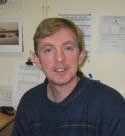 Stuart McGugan is an educational developer within the Centre for Lifelong Learning at the University of Liverpool. He has responsibility for supporting the development of good practice in learning, teaching and assessment across all disciplines at the University. This involves co-ordinating the Graduate Teaching Assistant programme and teaching on the Postgraduate Certificate in Learning and Teaching and the Certificate of Professional Studies programme for new lecturers. Prior to joining Liverpool he lectured in Tourism Studies at Queen Margaret University, Edinburgh and at La Trobe University, Melbourne. He is interested particularly in collaborative learning and learning skills development.
Stuart McGugan is an educational developer within the Centre for Lifelong Learning at the University of Liverpool. He has responsibility for supporting the development of good practice in learning, teaching and assessment across all disciplines at the University. This involves co-ordinating the Graduate Teaching Assistant programme and teaching on the Postgraduate Certificate in Learning and Teaching and the Certificate of Professional Studies programme for new lecturers. Prior to joining Liverpool he lectured in Tourism Studies at Queen Margaret University, Edinburgh and at La Trobe University, Melbourne. He is interested particularly in collaborative learning and learning skills development.
Sean McKitrick
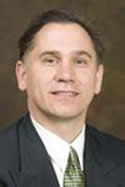 Dr. Sean McKitrick is Assistant Provost for Curriculum, Instruction, & Assessment at Binghamton University (State University of New York). In the past, he has served as assessment and accreditation coordinator at Indiana State University, dean of instruction at Bryant & Stratton College in Lackawanna, New York, and as academic dean at Parks College in Thornton, Colorado. He has presented at the 2nd and 3rd International Congress of Qualitative Inquiry, at the Association of Institutional Research Conference, the 5th Annual North Carolina State Assessment Symposium, the Indiana Association of the Arts Conference, and the Indiana North Central Association Commission on Accreditation and School Improvement conference. He has published articles on assessment in Assessment Update and the College Reading Association Yearbook. He received his doctorate from Claremont Graduate University in political science, and his master’s and bachelor’s degree from Brigham Young University in international relations.
Dr. Sean McKitrick is Assistant Provost for Curriculum, Instruction, & Assessment at Binghamton University (State University of New York). In the past, he has served as assessment and accreditation coordinator at Indiana State University, dean of instruction at Bryant & Stratton College in Lackawanna, New York, and as academic dean at Parks College in Thornton, Colorado. He has presented at the 2nd and 3rd International Congress of Qualitative Inquiry, at the Association of Institutional Research Conference, the 5th Annual North Carolina State Assessment Symposium, the Indiana Association of the Arts Conference, and the Indiana North Central Association Commission on Accreditation and School Improvement conference. He has published articles on assessment in Assessment Update and the College Reading Association Yearbook. He received his doctorate from Claremont Graduate University in political science, and his master’s and bachelor’s degree from Brigham Young University in international relations.
John Pryor
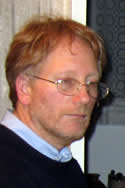 John Pryor is a Reader in Education at the University of Sussex, which he joined after 17 years as a teacher in secondary and primary schools. In HE, he has mainly taught on postgraduate programmes, most recently managing an interdisciplinary professional doctorate. His research has investigated the social contexts of education in schools, colleges and universities both in the UK and sub Saharan Africa. Following a doctorate on gender and group work, John is best known as a researcher in the field of formative assessment. This work, much of it in collaboration with Harry Torrance and Barbara Crossouard, has involved both developing a critical sociocultural theorization of formative assessment and also using action research to develop practice in different educational settings. John has also published on intercultural collaboration in ethnography and more generally on research.
John Pryor is a Reader in Education at the University of Sussex, which he joined after 17 years as a teacher in secondary and primary schools. In HE, he has mainly taught on postgraduate programmes, most recently managing an interdisciplinary professional doctorate. His research has investigated the social contexts of education in schools, colleges and universities both in the UK and sub Saharan Africa. Following a doctorate on gender and group work, John is best known as a researcher in the field of formative assessment. This work, much of it in collaboration with Harry Torrance and Barbara Crossouard, has involved both developing a critical sociocultural theorization of formative assessment and also using action research to develop practice in different educational settings. John has also published on intercultural collaboration in ethnography and more generally on research.
Andy Sharp
 Andy Sharp Graduated from Glasgow Polytechnic in 1992. After graduation Andy joined Glasgow Caledonian University, in the first instance as a researcher working on organisational development projects and subsequently, as a lecturer specialising in leadership, organisational behaviour and strategy. Andy’s expertise and experience encompasses several external consultancy projects working with Marks & Spencer, JVC, IBM, Keystone International, Albany Life, and Primal Design.
Andy Sharp Graduated from Glasgow Polytechnic in 1992. After graduation Andy joined Glasgow Caledonian University, in the first instance as a researcher working on organisational development projects and subsequently, as a lecturer specialising in leadership, organisational behaviour and strategy. Andy’s expertise and experience encompasses several external consultancy projects working with Marks & Spencer, JVC, IBM, Keystone International, Albany Life, and Primal Design.
Recently Andy facilitated a strategic HR review with Strathclyde Police. In addition he delivered keynote presentations at the ACPOS continuous improvement event and at Force conference events for Fife and Central Scottish Police Forces. Andy has 10 years of experience working with the voluntary sector and was actively involved in both developing programmes to improve employability skills with the long-term unemployed, and leading teams of volunteer youth workers engaged with socially disadvantaged youth.
Andy is completing a Masters Degree in Education at Strathclyde University where his thesis involves evaluating the effects of electronic voting technologies on student engagement and assessment.
Angela Sutherland
 Angela Sutherland attained Masters Degree with Distinction at Strathclyde University Graduate School of Business, has a 1st class (Hons) degree and was awarded the University Court Medal for research into an application of Business Ethics within Industry. She has worked in public, private and voluntary sector organisations and has been self-employed.
Angela Sutherland attained Masters Degree with Distinction at Strathclyde University Graduate School of Business, has a 1st class (Hons) degree and was awarded the University Court Medal for research into an application of Business Ethics within Industry. She has worked in public, private and voluntary sector organisations and has been self-employed.
Latterly Angela lectured within several Universities in the West of Scotland, at both post-graduate and undergraduate level, within the realms of Business Ethics, Internal Communication, Knowledge Management, Advanced Information Strategy and Strategic Management. She has worked on research projects with organisations such as Strathclyde Police and B&Q, and provides consultancy services for both public and private sector organisations.
Angela hopes to embark on a PHD later this year, which aims to evaluate the effectiveness of internal communication mechanisms within organisations in specific industry sectors in developing stimulus towards Continuous Performance Improvement.
Charlotte Taylor
 Charlotte Taylor is the Director of Learning and Teaching in the Faculties of Science at the University of Sydney. She is a former director of the First Year Biology unit, and has 15 years experience in course design, assessment and online learning for large classes of over 1000-1500 students. Outcomes of these activities include an Excellence in Teaching Award for the First Year Experience, and completion of a Master in Higher Education degree. She is Chair of the Science Faculty Education Research Group (SciFER) and of the Research in Biology Education and Training group (RIBET), and has published collaborative papers in areas of learning through writing, teaching large classes, giving feedback and online discussions. She has also been researching and publishing in the field of threshold concepts since 2004 and is currently investigating the identification of a threshold in the understanding of evolution. Other current projects include Improving student understanding and use of feedback for written assignments; Assessment of generic attributes; and a Carrick Institute funded project: Enhancing the Assessment of Learning in Australian Higher Education: Biological Science.
Charlotte Taylor is the Director of Learning and Teaching in the Faculties of Science at the University of Sydney. She is a former director of the First Year Biology unit, and has 15 years experience in course design, assessment and online learning for large classes of over 1000-1500 students. Outcomes of these activities include an Excellence in Teaching Award for the First Year Experience, and completion of a Master in Higher Education degree. She is Chair of the Science Faculty Education Research Group (SciFER) and of the Research in Biology Education and Training group (RIBET), and has published collaborative papers in areas of learning through writing, teaching large classes, giving feedback and online discussions. She has also been researching and publishing in the field of threshold concepts since 2004 and is currently investigating the identification of a threshold in the understanding of evolution. Other current projects include Improving student understanding and use of feedback for written assignments; Assessment of generic attributes; and a Carrick Institute funded project: Enhancing the Assessment of Learning in Australian Higher Education: Biological Science.
Tracy Winning
 Tracy Winning has been involved in the implementation, development and evaluation of the Adelaide PBL-based BDS curriculum and has contributed to the development of PBL packages for the Bachelor of Oral Health curriculum. Currently, Tracy co-ordinates the ongoing development and delivery of a range of PBL packages throughout the BDS curriculum as well as staff-development activities, particularly for PBL tutors. Tracy's major research activity, involving post-gradaute research students, is in dental education, particularly, development and evaluation of PBL, investigation of student experiences and outcomes of PBL and assessment and development of clinical skills in dental students. This has involved collaboration with colleagues in the Universities of Otago, and Sydney, and currently, Malmö University.
Tracy Winning has been involved in the implementation, development and evaluation of the Adelaide PBL-based BDS curriculum and has contributed to the development of PBL packages for the Bachelor of Oral Health curriculum. Currently, Tracy co-ordinates the ongoing development and delivery of a range of PBL packages throughout the BDS curriculum as well as staff-development activities, particularly for PBL tutors. Tracy's major research activity, involving post-gradaute research students, is in dental education, particularly, development and evaluation of PBL, investigation of student experiences and outcomes of PBL and assessment and development of clinical skills in dental students. This has involved collaboration with colleagues in the Universities of Otago, and Sydney, and currently, Malmö University.
| Panel profiles |
[Listed in alphabetical order]
Linda Creanor
 Linda Creanor is Development Director (Professional Practice) in the Caledonian Academy, a centre for educational research and scholarship at Glasgow Caledonian University. She is currently Chair of the Association for Learning Technology (ALT). She has been involved in a range of national and international e-learning projects as a researcher, designer, evaluator and consultant, and has presented and published widely. Most recently, she led the JISC funded LEX research study which explored the learner perspective on e-learning across the post-16 sectors. Linda is also an e-learning advisor to the REAP project, a Scottish Funding Council transformational project focusing on Re-Engineering Assessment Practices, led by Strathclyde University in collaboration with Glasgow Caledonian and Glasgow Universities. She is a Fellow of the Higher Education Academy.
Linda Creanor is Development Director (Professional Practice) in the Caledonian Academy, a centre for educational research and scholarship at Glasgow Caledonian University. She is currently Chair of the Association for Learning Technology (ALT). She has been involved in a range of national and international e-learning projects as a researcher, designer, evaluator and consultant, and has presented and published widely. Most recently, she led the JISC funded LEX research study which explored the learner perspective on e-learning across the post-16 sectors. Linda is also an e-learning advisor to the REAP project, a Scottish Funding Council transformational project focusing on Re-Engineering Assessment Practices, led by Strathclyde University in collaboration with Glasgow Caledonian and Glasgow Universities. She is a Fellow of the Higher Education Academy.
Sharon Hamilton
 Sharon Hamilton is currently Associate Vice Chancellor for Academic Affairs, Associate Dean of the Faculties, and Chancellor’s Professor of English at Indiana University Purdue University Indianapolis (IUPUI). After serving as founding director of the IUPUI institutional portfolio, she has, until recently, directed the project team developing the conceptual design and implementation process for student electronic portfolios that document both improvement and achievement in student learning. Additionally, Dr. Hamilton is a Carnegie Scholar with the Carnegie Foundation for the Advancement of Teaching and Learning. For the past several years, she has played a leadership role on campus for the assessment of teaching and learning.
Sharon Hamilton is currently Associate Vice Chancellor for Academic Affairs, Associate Dean of the Faculties, and Chancellor’s Professor of English at Indiana University Purdue University Indianapolis (IUPUI). After serving as founding director of the IUPUI institutional portfolio, she has, until recently, directed the project team developing the conceptual design and implementation process for student electronic portfolios that document both improvement and achievement in student learning. Additionally, Dr. Hamilton is a Carnegie Scholar with the Carnegie Foundation for the Advancement of Teaching and Learning. For the past several years, she has played a leadership role on campus for the assessment of teaching and learning.
Dr. Hamilton has written several journal articles and book chapters about writing across the curriculum, collaborative learning, literacy, and portfolios. Her book-length publications include Collaborative Learning in the Arts, Sciences, and Professional Schools, Collaborative Learning in Higher Education: Underlying Processes and Effective Techniques, Writing in the Arts, Sciences, and Professional Schools and My Name’s Not Susie: A Life Transformed by Literacy. She has just completed an edited collection: The Scholarship of Teaching and Learning at IUPUI.
Susan Kahn
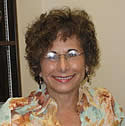 Dr. Susan Kahn first joined IUPUI in 1998 as national director of the Urban Universities Portfolio Project. In that capacity, she coordinated a six-campus collaborative project that produced the first generation of electronic institutional portfolios. These portfolios sought to demonstrate student learning and achievement in the context of a group of universities serving a highly diverse array of learners. The portfolios include authentic examples of student learning and development in multiple media, aggregated assessment findings, and performance indicators, with supporting data. Upon the conclusion of that project, Dr. Kahn became Director of Institutional Effectiveness at IUPUI, with responsibility for documenting and demonstrating institutional accountability through annual campus Performance Reports, accreditation self-study, and the online institutional portfolio. She subsequently assumed additional responsibility as Director of IUPUI’s student ePortfolio initiative, which supports deeper, more integrated student learning, and enables students, departments, schools, and the institution as a whole to demonstrate student learning of key collegiate abilities and skills.
Dr. Susan Kahn first joined IUPUI in 1998 as national director of the Urban Universities Portfolio Project. In that capacity, she coordinated a six-campus collaborative project that produced the first generation of electronic institutional portfolios. These portfolios sought to demonstrate student learning and achievement in the context of a group of universities serving a highly diverse array of learners. The portfolios include authentic examples of student learning and development in multiple media, aggregated assessment findings, and performance indicators, with supporting data. Upon the conclusion of that project, Dr. Kahn became Director of Institutional Effectiveness at IUPUI, with responsibility for documenting and demonstrating institutional accountability through annual campus Performance Reports, accreditation self-study, and the online institutional portfolio. She subsequently assumed additional responsibility as Director of IUPUI’s student ePortfolio initiative, which supports deeper, more integrated student learning, and enables students, departments, schools, and the institution as a whole to demonstrate student learning of key collegiate abilities and skills.
Prior to joining IUPUI, Dr. Kahn directed a University of Wisconsin System-wide faculty development office that supported initiatives focused on effective teaching and learning and on expanding campuses’ capacity to support teaching and learning. She co-edited the AAHE volume, Electronic Portfolios: Emerging Practices in Student, Faculty, and Institutional Learning and has published work in such venues as Metropolitan Universities, Change magazine, and Jossey-Bass’s New Directions in Teaching and Learning series. She presents and consults frequently on assessment, accreditation, and electronic portfolios and serves as a member of the Consultant-Evaluator Corps of the North Central Association’s Higher Learning Commission.
Katy McCloskey
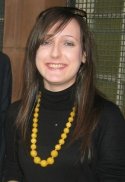 Katy McCloskey is the Past President of the University of Strathclyde Students Association. As President of the student body, Katy was responsible for representing the views of over 15,000 students to the University, mostly on academic matters. During her time in office, she campaigned on many student issues such as anonymous marking, charging for course materials, variable fees, and library opening hours.
Katy McCloskey is the Past President of the University of Strathclyde Students Association. As President of the student body, Katy was responsible for representing the views of over 15,000 students to the University, mostly on academic matters. During her time in office, she campaigned on many student issues such as anonymous marking, charging for course materials, variable fees, and library opening hours.
Whilst Student President, Katy sat on the University Academic Committee and Senate. During this time she became involved in the Academic strategy, and developed an interest in the QAA first year student experience theme.
She now sits on the Strathclyde Assessment review group. Katy is also part of the project team investigating the expectations and experiences of the first year across Scotland, funded by the QAA. Recently, she has been involved in a project looking at easing transition between School and University.
Katy's interests include: the first year experience, transition, assessment, accessibility, and student involvement. She studies journalism at Strathclyde and is a part time Press Officer for a Member of the Scottish Parliament..
Margaret Price
 Professor Margaret Price is Director of the Centre for Excellence in Teaching and Learning, ASKe (Assessment Standards Knowledge exchange). Her role involves working with a team of colleagues to build a learning community centred on assessment, to encourage innovation and foster evidence-based assessment practice within the Higher Education sector.
Professor Margaret Price is Director of the Centre for Excellence in Teaching and Learning, ASKe (Assessment Standards Knowledge exchange). Her role involves working with a team of colleagues to build a learning community centred on assessment, to encourage innovation and foster evidence-based assessment practice within the Higher Education sector.
Margaret was awarded a National Teaching Fellowship in June 2002 in recognition of her excellence in teaching and contribution to the development of learning, teaching and assessment in Higher Education, especially through curriculum development in interdisciplinary learning and interpersonal skills development. She is Professor in Learning and Assessment at Oxford Brookes and her research interests focus on peer support for learning; criterion referenced assessment; social constructivist approaches to sharing knowledge or assessment standards with students and the effectiveness of sharing knowledge of standards within marking teams.
Brenda Smith
 Brenda Smith is an Assistant Director of the Higher Education Academy. Prior to this she was Head of the Generic Centre of the Learning and Teaching Support Network (LTSN).
Brenda Smith is an Assistant Director of the Higher Education Academy. Prior to this she was Head of the Generic Centre of the Learning and Teaching Support Network (LTSN).
Brenda takes a lead role for the Academy’s work on assessment and feedback and was responsible for initiating the Change Academy Project which is now in its fourth year. She is actively involved in supporting a number of institutions across the UK with enhancing assessment. She has run conferences, given keynote presentations and 24 hour events for HEIs that have included both staff and students. She is keen to involve students in these events wherever possible. Brenda believes that students can act as key change agents in helping staff to reflect on and enhance their practice.
She is a member of international committees for the Improving University Teaching (IUT) Conference, the journal Assessment and Evaluation in Higher Education, the USA based Journal on Excellence in College Teaching and a past Executive member of the Professional and Organisational Development Association (POD) in America.
Brenda has acted as a consultant and facilitated seminars and workshops in many different countries including Sweden, South Africa, Singapore, the Philippines, Hong Kong, Taiwan, Ethiopia, Azerbaijan, America, Lithuania, Colombia, the West Indies and Malaysia. Brenda has written widely on learning, teaching and assessment.


